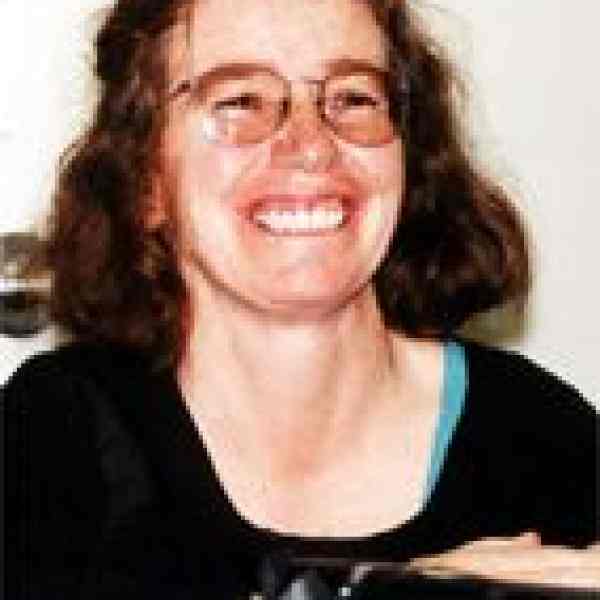Introduction
María Carmen Schulze is improving the quality of life of both educators and students in formal and informal educational settings by promoting creative, democratic and effective tools for education.
The New Idea
María Carmen improves the state of education in Bolivia through a comprehensive and integrated model that changes the philosophy of the classroom and advocates for new, more open public policies. She teaches educators to use techniques and tools that foster creative thinking in students, combat the high dropout rates, and, ultimately, inspire children to grow into engaged, productive adults. Her organization trains public school teachers and community educators to use interactive art, games, and activities that promote the broad concept of learning and self-development, beyond specific curricula. She also works with educators to include marginalized youngsters through workshops in public spaces.
The Problem
Teachers and informal educators in Bolivia and throughout much of the Andean region generally lack training in formulation of creative education plans. Teaching universities (or teacher training institutes) have very rigid programs that tend to focus on specific subject areas and theory but not on practical tools for effectively reaching children. The most commonly used teaching models primarily rely on dictation and memorization, as opposed to creative activities that promote independent analysis and creative thinking. Furthermore, teaching is still a highly undervalued career in Bolivia, leading to very low self-esteem levels that cause an attitude of authoritarianism in the classroom, reinforced by rigid hierarchical management systems within school administration. The UNDP reports that 70 percent of Bolivian children live in poverty, leading to a very high incurrence of truancy and street life. The growing number of children who live or work on the streets has created a demand for effective informal education. Though grassroots community educators are now being recognized as para-professionals, they still lack the training and tools necessary to facilitate effective learning. Children who do not have the opportunity to play and express themselves creatively often turn to dangerous forms of recreation like crime and drugs.
The Strategy
María Carmen founded the Cultural Creative Center in 1995 to develop cultural-educational activities, conduct research, and improve the education profession's human resources. She helps professionals in the formal and informal education sectors foster creativity and new value in learning through participatory workshops, seminars, and courses. María Carmen's team assesses teaching styles and engages teachers in discussions on classroom management as a first step in the process of facilitating creativity and enthusiasm for education. After carefully exploring issues of control and creativity, María Carmen develops practical tools that teachers can use to create a more open environment in their classrooms. Her workshops encourage teachers to utilize uncommon materials and employ less traditional settings to encourage creativity, demonstrating how freely available items like clay, leaves, and scrap paper can be used for art, science, language, social studies, and math lessons that set new paradigms for engaged learning. The second major component of María Carmen's method consists of workshops in which street children participate in various games and arts activities as a transition to academic endeavors. María Carmen and instructors lead children in exercises that promote creativity and motor skills development. The activities are formatted so that street kids nurture a sense of academic participation, improving self-esteem and respect for community leaders, while sharing simple projects that increase enthusiasm for learning. As a result, underserved youngsters who would otherwise turn to clandestine and dangerous pastimes can express themselves constructively and often seek out formal education opportunities in school or job training. María Carmen's pioneering methods have begun to effect municipal policy change in Bolivia, inspiring a shared, long-term vision of creativity in education at the local and, eventually, national levels. Through an agreement with the Municipal Office of Culture, she is introducing workshops in libraries around La Paz. She published a book outlining her model, produced a promotional video, and continues to develop new materials and tools to share with educators, civil society organizations, and indigenous leaders around South America.
The Person
María Carmen was raised with a strong sense of social justice and solidarity. Coming of age in Bolivia at the end of the 1960s and beginning of the 1970s, she was involved in many of the social movements of the time. In high school, she conducted activities with disadvantaged children, volunteered her time at local hospitals, and organized meetings with community leaders to discuss solutions to important socio-economic problems.At the end of the 1970s María Carmen worked with the controversial Bolivian film production company Ukamau. During General Luis García Mezza's regime in 1980, she left Bolivia and went to Mexico where she began her dedicated work as an educator. She taught child development courses at a university and conducted workshops for preschool teachers. In 1986, she and her family moved to her husband's home in Montevideo, Uruguay, where she studied education and developed programs by which children from poor families were engaged in education through group learning activities, known as the ludic method. In 1994, she returned to Bolivia and founded the Cultural Creative Center to promote her new model of education in the citizen sector and apply it in new ways within the formal education sector.
